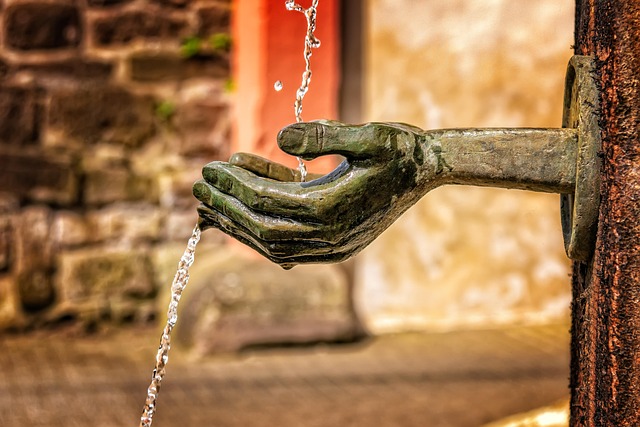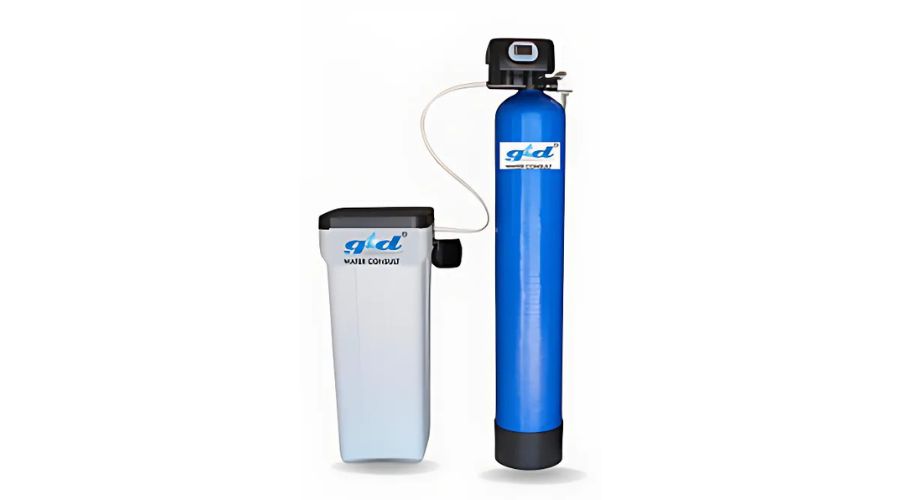Is hard water bothering you? Hard water is a common challenge across many parts of India. The tell-tale signs are easy to spot — hair-loss, itchy skin, white film on bathroom tiles, spots on glassware, rough clothes and clogged plumbing systems. While some people rely on traditional remedies to make hard water soft, these methods often provide temporary or ineffective results. What about an ultimate guide to buying a water softener for your home?
A water softener is a smart device that automatically treats hard water and protects your home, skin, and appliances. However, many homeowners confuse a water softener with a water purifier, which leads to wrong purchases. This guide will help you understand everything about water softeners — what they are, how they work, and what to look for when buying one for your home.
What Is Hard Water?
Hard water contains an excess of dissolved minerals such as calcium, magnesium, iron, and manganese. The hardness of water is usually measured in grains per gallon (GPG) or parts per million (PPM).
-
Water with less than 1 GPG is considered soft.
-
Water with more than 1 GPG (or 17.1 PPM) is classified as hard.
While a small amount of minerals in water isn’t harmful, high levels can cause multiple household and health problems over time.
Why Hard Water Is a Problem
Hard water impacts both your home and health in ways you might not immediately notice:
In Your Home
-
Leaves white stains and mineral deposits on tiles, faucets, and glassware.
-
Reduces the lifespan of geysers, washing machines, and dishwashers.
-
Causes plumbing blockages due to limescale buildup.
-
Makes detergents and soaps less effective, leading to higher consumption.
On Your Health
-
Can contribute to dry skin and brittle hair.
-
Has been associated with eczema, constipation, and kidney stones.
-
May affect bone mineral balance when consumed over long periods.
Switching to soft water not only enhances your comfort but also protects your household systems from damage.
What Is a Water Softener?
A water softener is a device that removes hardness-causing minerals like calcium and magnesium through a process called ion exchange. The system replaces these minerals with sodium or potassium ions, transforming hard water into soft water.
The benefits are immediate:
-
Prevents scale buildup in pipes and appliances.
-
Enhances the performance of soaps and shampoos.
-
Keeps bathroom fittings cleaner for longer.
-
Extends the life of home appliances.
Types of Water Softeners
Different types of water softeners are available, depending on your needs and preferences. Here are the most common types used in Indian households:
1. Ion Exchange Water Softeners
The most widely used and reliable option. These systems contain resin beads that replace hard minerals with sodium or potassium. They effectively soften water across the home and are ideal for areas with high mineral content.
2. Salt-Free Water Softeners
Instead of removing minerals, these systems neutralize the scaling properties of hard minerals using potassium chloride. While not as powerful as ion exchange systems, they are suitable for those concerned about sodium intake and who want minimal maintenance.
3. Magnetic or Electronic Water Conditioners
These are descaling systems that alter the electromagnetic properties of minerals, preventing them from adhering to surfaces. They are ideal for preventing scale buildup but do not technically soften water.
4. Dual-Tank Water Softeners
These systems include two resin tanks that work alternately, ensuring continuous soft water supply even during regeneration cycles — perfect for larger households or properties with high water usage.
How to Detect Hard Water in Your Home
Some of the most common signs of hard water include:
-
White deposits or stains on bathroom tiles, taps, and sinks.
-
Reduced water pressure from scaling in pipes.
-
Clothes feeling stiff after washing.
-
Dull or frizzy hair after bathing.
For accurate results, it’s best to get your water tested. GD Water Consult, in collaboration with IIT-Delhi-based water quality experts, offers scientific water testing for parameters like hardness, pH, TDS, and chlorine levels — helping you choose the perfect water treatment solution for your home.
Choosing the Right Size of Water Softener
The right softener isn’t about its physical size — it’s about its capacity to handle your household’s water hardness.
To estimate:
-
Multiply the number of people in your home by the average daily water use per person.
-
Multiply this number by the hardness level of your water (in GPG).
This gives you the total hardness load your system needs to handle daily. Based on that, you can choose between point-of-use systems (for washing machines, dishwashers, or geysers) or whole-house systems that provide soft water to every outlet.
Smart Features to Look For
When choosing a modern water softener, check for features that enhance efficiency and ease of use:
-
Automatic regeneration — system regenerates based on actual water usage.
-
Digital control panel — for real-time monitoring and easy setting adjustments.
-
Compact design — fits neatly next to geysers, washing machines, or storage tanks.
-
Low maintenance — systems with self-cleaning or minimal manual intervention.
Installation Options
There are two main types of installations:
Whole-House Water Softeners
Installed with the main water line or overhead tank, providing soft water for every tap in your home — from kitchen to bathroom.
Point-of-Use Water Softeners
Installed at specific outlets like geysers or washing machines, ideal for smaller setups or apartments.
GD Water Consult offers professional installation services, ensuring seamless integration with your plumbing and consistent soft water flow.
Maintenance and Care
To keep your system performing optimally:
-
Refill the salt tank (for ion exchange models) as recommended.
-
Schedule periodic servicing to clean resin beads and check water flow.
-
Regularly test your water to monitor changes in hardness.
With proper care, a quality water softener can last for years while ensuring better water quality throughout your home.
Why Choose GD Water Consult
At GD Water Consult, we’ve been committed to improving water hygiene and system efficiency for over a decade. We provide zero-chemical, non-invasive, and efficient water solutions designed for both urban and semi-urban households.
Our range of Zero B and 3M water softeners offers:
-
Reliable performance
-
Long service life
-
Easy maintenance
-
Seamless integration for homes, apartments, and commercial spaces
From testing to installation and after-sales service, our team ensures your home enjoys consistently soft, high-quality water — every single day.

Ready to Experience Softer, Healthier Water?
Explore our complete range of Zero B and 3M water softeners and schedule a free consultation with our experts:





2 Comments
John Doe
Posted on: March 13, 2025Leverage agile frameworks to provide a robust synopsis for high level overviews. Iterative approaches to corporate strategy foster collaborative thinking to further the overall value proposition.
John Doe
Posted on: March 13, 2025Leverage agile frameworks to provide a robust synopsis for high level overviews. Iterative approaches